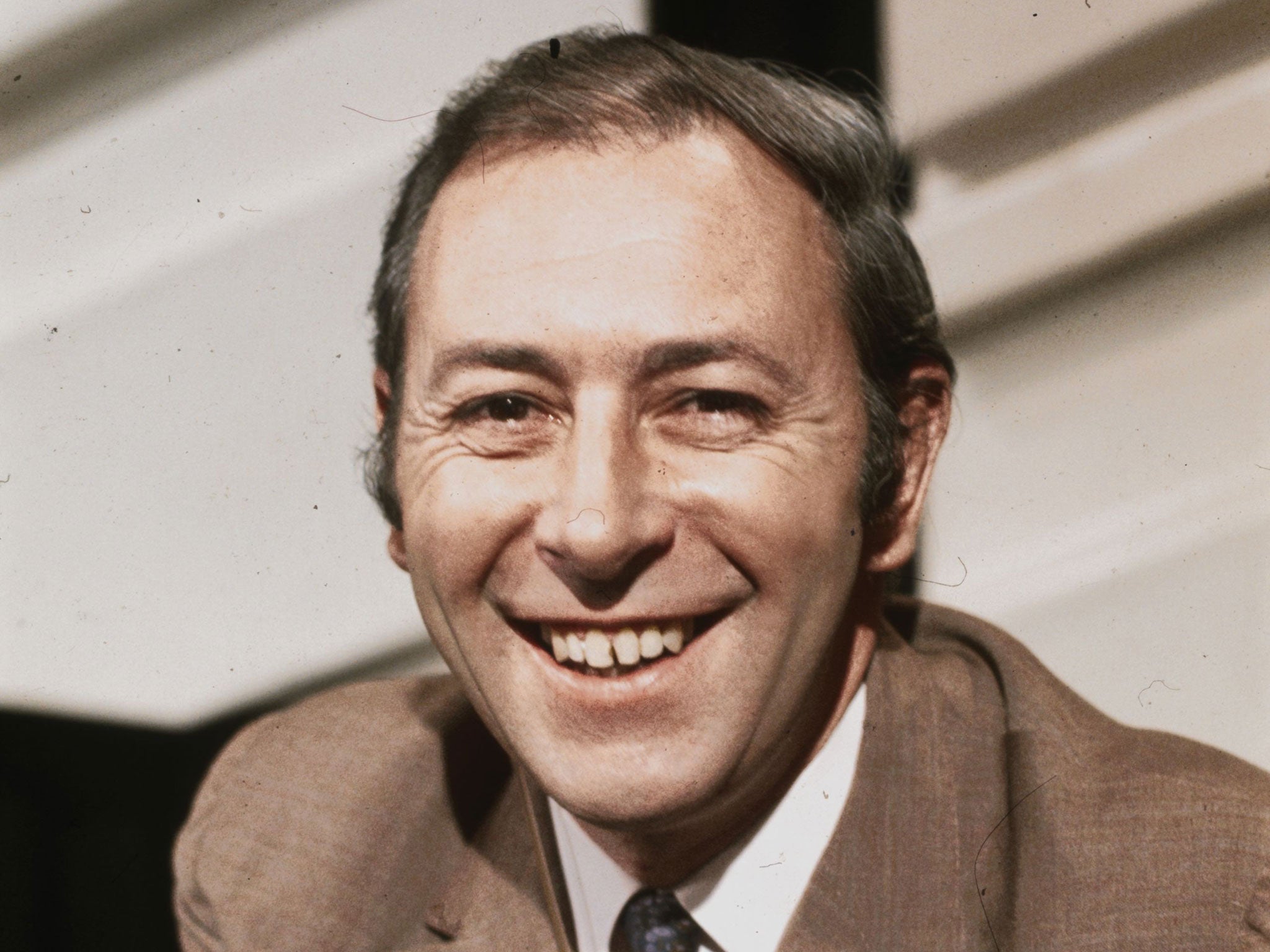Kevin Garside: When I was a boy, ‘Sportsnight with Coleman’ was my window on another world of sporting exotica, kindling a love of the real thing
Instead of some kitchen-sink drama, I was immersed in a world of winners and losers

We have heard a lot about the technical accomplishments of David Coleman, his journalistic qualities, his exacting demands, his thoroughness and his devotion. All of these attributes are worthy but not part of the relationship I had with him. When I was a boy growing up in the grey Mancunian hinterland of Seventies Oldham, Coleman was an enticing figure, my window on another world, a floodlit nirvana of sporting exotica.
Coleman came into my life initially on Tuesday nights and then on Wednesdays with his packaged highlights programme, disseminating a love of football. It is hard to imagine how powerful this exposure was, given the proliferation of live sport available to us on our myriad platforms today. In those days Sportsnight with Coleman was it. It didn’t come easy, and at first, it didn’t even come in colour.
The television was a thing on four spindly legs around which the whole family would sit. There was no remote control, just four buttons as big as coat pegs. To change channel you had to get out of your chair and push. And once the selection was made, you stuck with it from beginning to end.
There was thus a real sense of privilege when the argument was won to allow me to stay up beyond the watershed to connect to this netherworld of sporting dreams. The television was mine for the 50 minutes or however long it was. Instead of some kitchen-sink drama, or weighty current affairs programme like World In Action or Panorama, I was immersed in a world of winners and losers. You could have performed open-heart surgery on me for all I would have noticed. Football was a kind of anaesthetic, boxing too, desensitising me to everything bar the pitch or the ring filling the screen. There were no summer broadcasts. Night-time Coleman came and went with the football and boxing seasons. There might have been other sports, but they left little impression.
This weekly ritual predated the live experience. Indeed, it was Coleman who inadvertently made my father’s life a misery urging me forward with his informed, pacy delivery to the point when Herbert Henry finally said yes, we could go to the ball. My father had nil sporting interest beyond the progress of his selections in the ITV Seven. He never won, or at least never reported it.
But this day would be special. He returned from work to announce that we were off to Old Trafford to watch Manchester United in an FA Cup third-round replay against Southampton with my sister and her boyfriend, a Droylsden red called Dave. That meant Law, Charlton and Best in the flesh. In the event Law didn’t play, but I saw Best score twice and I believe raise two fingers to the directors’ box, the beginning of the end for Georgie at United, though none knew it then.
The trek down Warwick Road on my father’s shoulders peering above thousands of bobbing heads was impossibly stirring, the ascent up the steps behind the Scoreboard Paddock, that first glimpse of Old Trafford’s verdant, floodlit expanse, a rite of passage never to be forgotten.
United won 4-1, creating its own tension. Could we get back in time to watch the whole thing again on Sportsnight? This constant cycle of interpretation and evaluation was fostered in me by Coleman. That was his legacy. Not the lessons he taught as a journalist but the love of football and ultimately sport that he nurtured on those long winter nights.
It came as a surprise to learn much later that he could be an awkward sod, that his commitment and dedication often justified a less than generous attitude towards those working at his side. That said, the media has a history of not only tolerating behaviour less than cordial, but allowing it to flourish. I recall time as a pundit with one presenter, who would, during breaks, routinely abuse production staff in the name of perfection while reaching down beneath his seat for a comb and mirror for preening purposes. I bet Coleman never did that.
As a kid none of that mattered, anyway. Neither, to be frank, did the expertise with which he handled the Olympic crisis at Munich, or pronounced correctly the complex arrangement of vowel-free characters in the names of foreign 400-metre runners. For me, it was the enthused, engaged figure conjuring magic through the cathode-ray tube, making tangible a world beyond experience, that lives on. Coleman is up there with Harry Carpenter, Peter O’Sullevan, Dan Maskell and John Arlott, as an indelible voice ushering me into this sporting sect from which there is no escape. For that I shall be eternally grateful.
Subscribe to Independent Premium to bookmark this article
Want to bookmark your favourite articles and stories to read or reference later? Start your Independent Premium subscription today.

Join our commenting forum
Join thought-provoking conversations, follow other Independent readers and see their replies